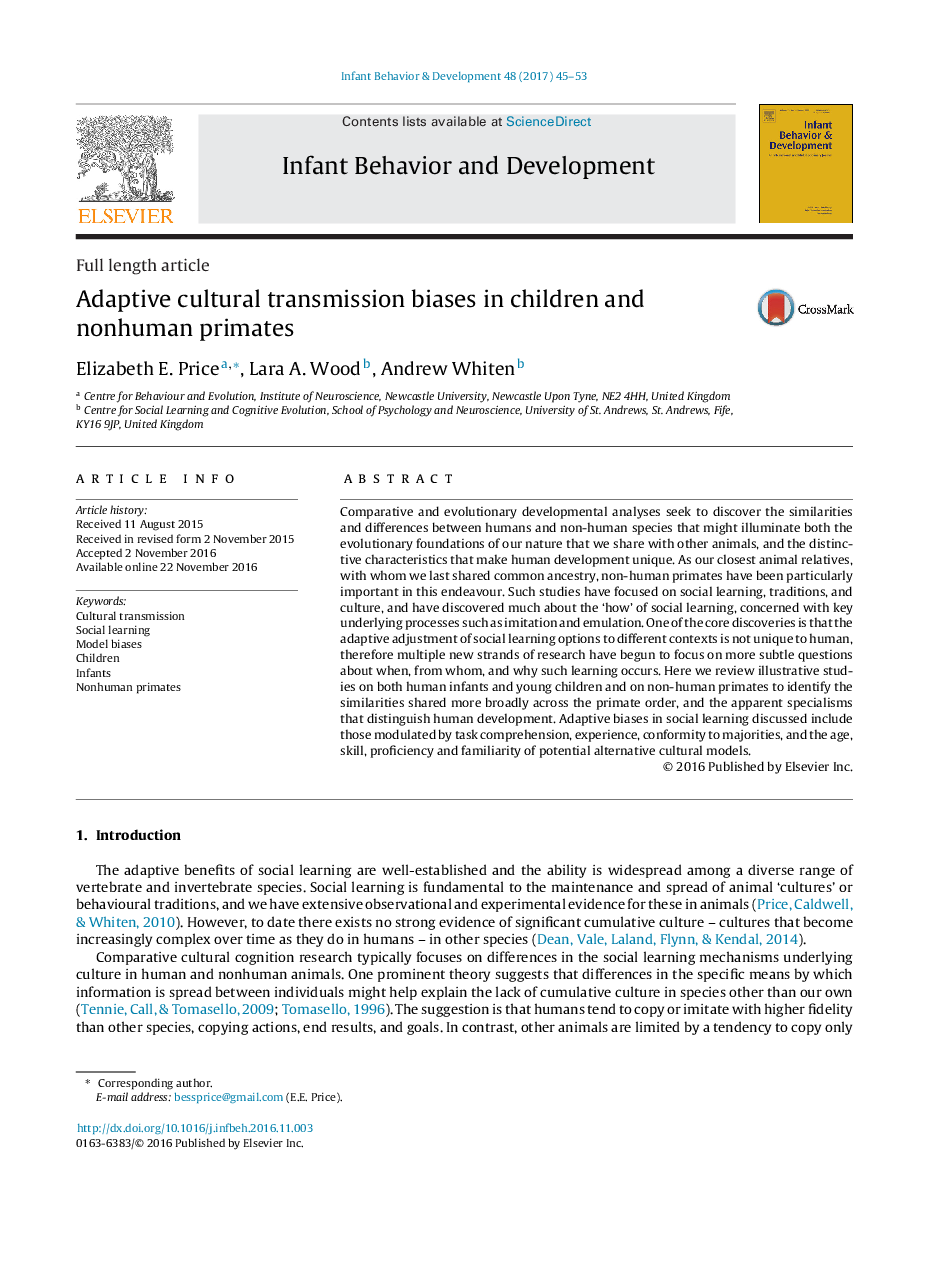| کد مقاله | کد نشریه | سال انتشار | مقاله انگلیسی | نسخه تمام متن |
|---|---|---|---|---|
| 5039849 | 1370378 | 2017 | 9 صفحه PDF | دانلود رایگان |
- Cultural transmission biases govern when and from whom to socially learn.
- Recent research suggests that biases that shape learning in children may also guide nonhuman primate cultural transmission.
- We review what we know to date and suggest avenues for future comparative research.
Comparative and evolutionary developmental analyses seek to discover the similarities and differences between humans and non-human species that might illuminate both the evolutionary foundations of our nature that we share with other animals, and the distinctive characteristics that make human development unique. As our closest animal relatives, with whom we last shared common ancestry, non-human primates have been particularly important in this endeavour. Such studies have focused on social learning, traditions, and culture, and have discovered much about the 'how' of social learning, concerned with key underlying processes such as imitation and emulation. One of the core discoveries is that the adaptive adjustment of social learning options to different contexts is not unique to human, therefore multiple new strands of research have begun to focus on more subtle questions about when, from whom, and why such learning occurs. Here we review illustrative studies on both human infants and young children and on non-human primates to identify the similarities shared more broadly across the primate order, and the apparent specialisms that distinguish human development. Adaptive biases in social learning discussed include those modulated by task comprehension, experience, conformity to majorities, and the age, skill, proficiency and familiarity of potential alternative cultural models.
Journal: Infant Behavior and Development - Volume 48, Part A, August 2017, Pages 45-53
